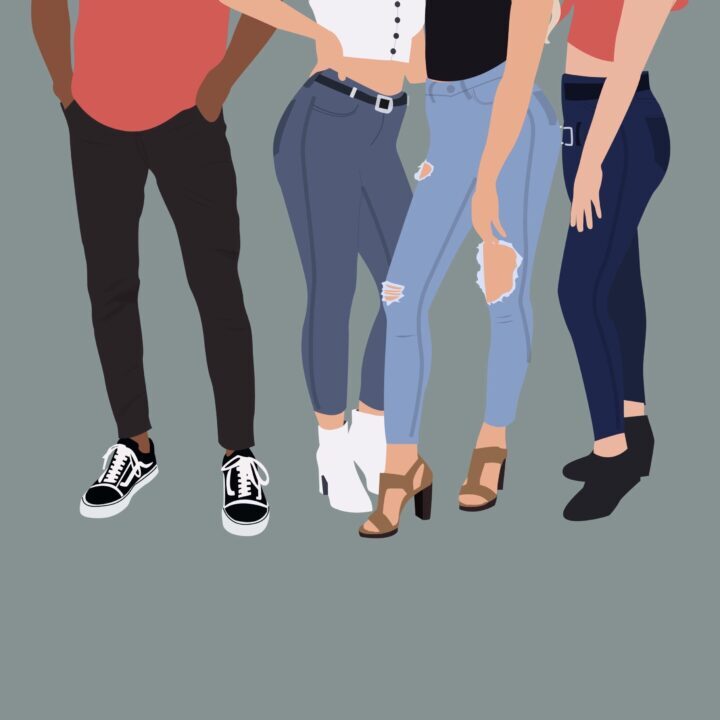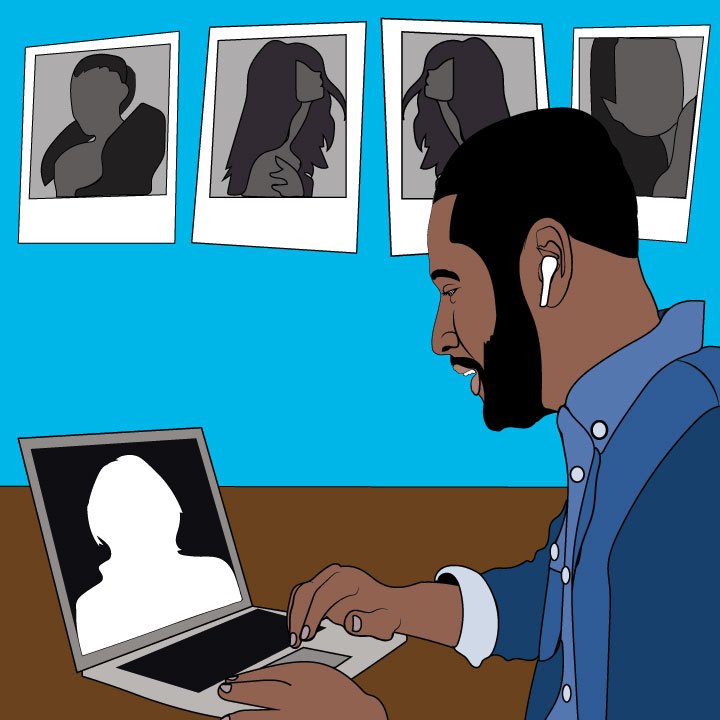By Dana Feeney × Vaughn Lowery
The modeling industry has two very different faces. One side are supermodels, like Gigi and Bella Hadid, glamorously modeling, making millions of dollars, and traveling the world. The other are the unknown models working job to job, facing exploitation and manipulation by their agencies and clients, and trying to make their name in the industry. The mistreatment of models is as old as the industry itself. Skinny, cis, and white models experience this brutal reality. Working as a model is only worse for people of color [POC], LGBTQA+, and immigrants because of the lack of transparency or regulation and rampant misconduct.
New Players
The current push for diversity and inclusion has caused a much higher demand for POC, and LGBTQA+ models with different body types. In recent months, a few new players in the game are building their reputations on accountability and proper treatment of the models and creatives they represent. Several small agencies and one superpower are disrupting the model representation world: New Pandemics, Zandwagon, Community New York, We Speak Models, and film and television power player Creative Artists Agency (CAA).
The way modeling deals traditionally work is that a model signs to an agency, such as Next Models, Ford Models, IMG Models, or Wilhelmina Models. The agency provides its models with certain services such as housing, transportation, portfolio shoots, and more. In most cases, anything an agency provides for a model they have to pay back to the agency, often at a high-interest rate. The interest rate means the longer they take to pay it back, the more they owe to the agency.
Although models sign contracts to agencies, they are not considered employees of those agencies and instead are independent contractors who the agency aids in booking jobs. The agencies do not keep models on their payroll. They do control the money that the models earn on a job and how their money models earn is distributed. Bad payment practices reach far beyond the agencies. The agencies are responsible for billing the client right after the model completes their job. Payment for jobs by agencies to their models is notoriously sketchy because clients are not required to pay upfront before shoots and can legally take up to 90 days to settle up. Most agencies take at least a 20% fee out of any money their models make and charge clients a “booking fee,” so for a $1000 job, they would charge $1200 but only pay the model $800. Worst of all, if a client does not pay the agency for work a model did, the agency does not owe the model the money they earned. The common practice in the industry is that the model only gets paid if the agency gets paid.
The film and television management world contrasts the modeling world in many ways. The modeling industry as a whole is riddled with misconduct, manipulation, and poor treatment of models by their agencies and brands. Many modeling agencies use contracts that include fees and costs they can pull out of the model paychecks and use debt, housing, and visas to keep their models dependent.
Agencies in other media such as film, only make money if their clients make money. In film, the percentage is around 10% because of unions. Although, none of these industries are flawless especially considering scandals in the film and tv world with predators like Harvey Weinstein and Matt Lauer.
Creative Artists Agency (CAA) has a long history of representing talents across film, tv, music, and more. In August of 2020, CAA announced their partnership with KCD Worldwide, a fashion services agency, which signaled CAA’s entrance into fashion model management for the first time in the agency’s history. CAA has a strong legacy of representing high-profile individuals and building their careers. They have also stated that they only take a 10% fee out of their models’ earnings, half of the general standard of 20%. Despite their claims for better treatment of models, CAA is not blemish-free when it comes to allegations of abuse and sexual misconduct. Multiple former CAA agents have faced lawsuits.
Additionally, CAA has previously represented multiple people accused of misconduct, including Shia LaBeouf, Chris D’Elia, and Marilyn Mason; all of whom are no longer represented by CAA.
On the opposite end of the spectrum are the smaller boutique agencies mentioned earlier, New Pandemics, Zandwagon, and Community New York. New Pandemics is “a casting and management agency dedicated to increasing LBGTQ+ visibility.”
Zandwagon is “a talent management company that could guide everyday life individuals who are breaking beauty standards daily” according to their website. Community New York is run by Butterfly Cayley, Moe Lamstein, and Richie Keoall, three first-generation immigrants from Laos, and “is founded on inclusivity and progressive values by changing not only the style but the very structure of management.” Cayley, Lamstein, and Keoall have impressive experience at agencies including DNA and Elite Model Management. Community New York now represents stars such as Hunter Schafer, who is well known for her work on the hit HBO show “Euphoria” and is now a brand ambassador for Shiseido.
With small diversity forward agencies up and coming, the existing modeling industry is under attack from all sides. All three of these agencies emphasize how much they value representation and inclusivity in this industry that has avoided breaking societal beauty standards for so long. They also claim they will be different from other agencies and provide better treatment for their clients. These agencies are sending the message that you’re either with them or against them, and they’re willing to think outside of the box to get proper treatment and equity for models from all walks of life.
Same Old Problems
Many of the biggest fashion houses in the world are still reckoning with the #MeToo movement. The fashion industry is known as a highly predatory business. Many of even the largest names in modeling have had to survive people abusing their power on sets and behind the scenes to become who they are. Household names, such as Kate Upton, Coco Rocha, and Cameron Russel, have all spoken out about their experiences with the abuse they’ve experienced while working as models.
Kate Upton spoke out against Paul Marciano in 2018, which led to a total of $500,000 in settlement agreements involving five individuals. He has remained an active participant at GUESS as a board member and chief creative officer, despite resigning from his position as an executive. At the beginning of February, the news broke that Marciano is once again being sued over sexual assault allegations by a woman who has chosen to remain anonymous. The allegations against Marciano are not an isolated incident. Similarly, allegations were brought against Alexander Wang in December of 2020 but began as early as 2017, yet some still chose his side despite the overwhelming corroboration of multiple individuals. If the word of a woman as successful as Kate Upton is not enough to oust a predator from power, it’s unclear what realistically can protect vulnerable individuals with less acclaim from the same experiences or worse.
The silver lining of these allegations coming to light is the industry supporting the individuals coming forward more than ever before. In the past, many models lost their careers before they had even begun due to the actions of predators and the mechanisms powerful people use to silence their victims. Accounts such as @shitmodelmgmt and @dietprada have been using their online platforms to expose predators and condemn their actions openly across Instagram and Twitter. Additionally, the Model Alliance, an organization dedicated to giving models a voice in their work, has also spoken out against Wang on their Instagram saying, “We stand with David Casavant, Owen Mooney, Gia Garison, and all the accusers of @alexanderwangny in their pursuit towards justice.”
The upheaval that began in 2006 with survivor and activist Tarana Burke’s creation of the #MeToo movement has continued into 2021. Slowly but surely survivors are taking their power back and pushing to create real change in media industries that have exploited them for far too long.







